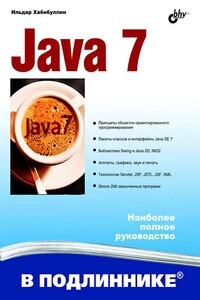Энциклопедия разработчика модулей ядра Linux | страница 32
>#include
>/* Deal with CONFIG_MODVERSIONS */
>#if CONFIG_MODVERSIONS==1
>#define MODVERSIONS
>#include
>#endif
>/* Necessary because we use proc fs */
>#include
>/* For putting processes to sleep and waking them up */
>#include
>#include
>/* In 2.2.3 /usr/include/linux/version.h includes a
>* macro for this, but 2.0.35 doesn't - so I add it
>* here if necessary. */
>#ifndef KERNEL_VERSION
>#define KERNEL_VERSION(a,b,c) ((a)*65536+(b)*256+(c))
>#endif
>#if LINUX_VERSION_CODE >= KERNEL_VERSION(2,2,0)
>#include
>#endif
>/* The module's file functions ********************** */
>/* Here we keep the last message received, to prove
>* that we can process our input */
>#define MESSAGE_LENGTH 80
>static char Message[MESSAGE_LENGTH];
>/* Since we use the file operations struct, we can't use
>* the special proc output provisions - we have to use
>* a standard read function, which is this function */
> #if LINUX_VERSION_CODE >= KERNEL_VERSION(2,2,0)
>static size_t module_output(
> struct file *file, /* The file read */
> char *buf, /* The buffer to put data to (in the user segment) */
> size_t len, /* The length of the buffer */
> loff_t *offset) /* Offset in the file - ignore */
>#else
> static int module_output(
> struct inode *inode, /* The inode read */
> struct file *file, /* The file read */
> char *buf, /* The buffer to put data to (in the user segment) */
> int len) /* The length of the buffer */
>#endif
>{
> static int finished = 0;
> int i;
> char message[MESSAGE_LENGTH+30];
> /* Return 0 to signify end of file - that we have
> * nothing more to say at this point. */
> if (finished) {
> finished = 0;
> return 0;
> }
> /* If you don't understand this by now, you're
> * hopeless as a kernel programmer. */
> sprintf(message, "Last input:%s\n", Message);
> for(i=0; i
> finished = 1;
> return i; /* Return the number of bytes "read" */
>}
>/* This function receives input from the user when
>* the user writes to the /proc file. */
>#if LINUX_VERSION_CODE >= KERNEL_VERSION(2,2,0)
>static ssize_t module_input(
> struct file *file, /* The file itself */
> const char *buf, /* The buffer with input */
> size_t length, /* The buffer's length */
> loff_t *offset) /* offset to file - ignore */
>#else
> static int module_input(
> struct inode *inode, /* The file's inode */


